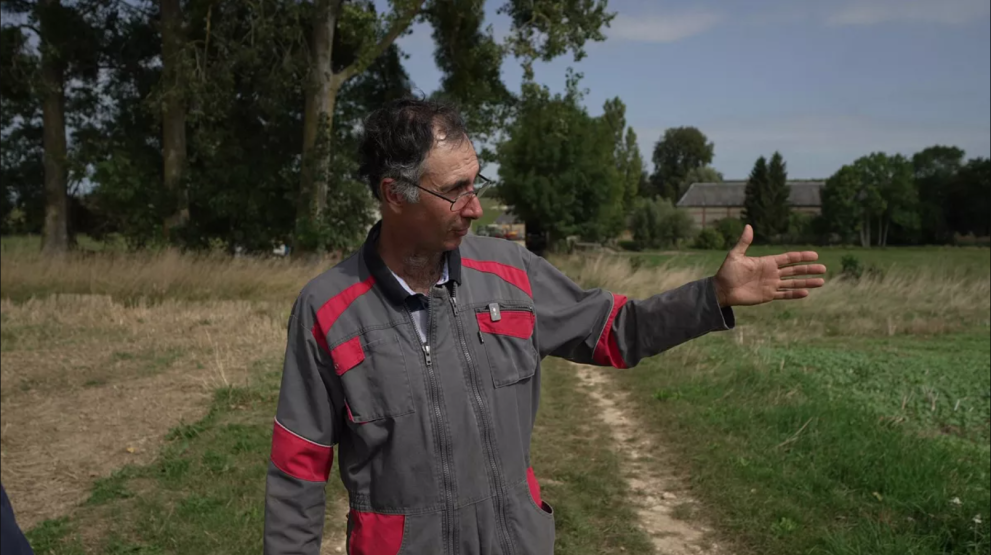
Today’s food and agricultural systems have succeeded in supplying large volumes of food to global markets. But industrial farming has massively contributed to biodiversity loss, the depletion of natural resources, pollution of soil, air and water and climate change. The majority of farmland in the EU is in poor condition, and with the increased droughts, floods and soil degradation, forecasts are alarming. Today’s food systems cannot sustain us in the long run.
We know that growing food while protecting nature is possible, but what’s stopping us?
In this episode of “The Road to Green”, Euronews explores what role agriculture could play in a sustainable future, dispelling some common myths about sustainable farming. It looks into successful examples of farming with nature, which provides food security, secures farmers’ livelihood and is kinder to the planet. In France, Euronews talks to farmers who have reduced the use of fertilisers and pesticides to protect soil and biodiversity. They further explore how innovation can be used in agroecology to improve yields while protecting nature.
In Finland, at the Qvijda farm we learn that regenerative farming can maximize carbon sequestration and that biodiversity restoration and conservation can actually increase productivity compared to the conventional approach. Finally, Euronews explores how different agricultural models can coexist and the opportunities offered by Europe's agroecological transition.
Background
The European Green Deal aims to put our food systems on a sustainable path, making them fair, healthy, environmentally-friendly and resilient. The EU Biodiversity Strategy, the Farm to Fork Strategy, proposal on a Nature Restoration Law and Sustainable Use of Pesticides Directive, and most recently the legislative proposal for the Soil Health Law, all aim to enable the transition to sustainable farming practices in the EU.
In particular, the EU aims to reduce by 50% the overall use of chemical pesticides and fertilisers, reduce antimicrobials for farmed animals and in aquaculture by 50%, boost organic farming and bring back nature to agricultural areas.
Nature-based solutions and nature restoration in agricultural areas brings back many of the services that nature provides for free and restores the foundation of our food system. Biodiverse and sustainably managed agricultural ecosystems are more resilient to climate change.
The Common Agricultural Policy is a key tool for implementing the Green Deal targets and help farmers in the transition to sustainable farming. Farmers will receive adequate training, advice and financial support for their contribution to environmental protection, beyond mere compliance with EU legislation.
“The Road to Green” is a Euronews magazine in collaboration with the Directorate-General for Environment (ENV). It features monthly 8-minute videos, delivered in a road trip format, covering Europe’s continuing transformation to a circular, net-zero, nature-positive and clean economy.
Watch the previous episodes from "The Road to Green" TV magazine
Disclaimer
DG ENV co-finances the production of the Road to Green, while Euronews retain full editorial independence. Views and opinions expressed in the programme are solely those of the speakers and do not necessarily represent the views and opinions of the European Commission or any other entities.
Details
- Publication date
- 20 September 2023
- Author
- Directorate-General for Environment

